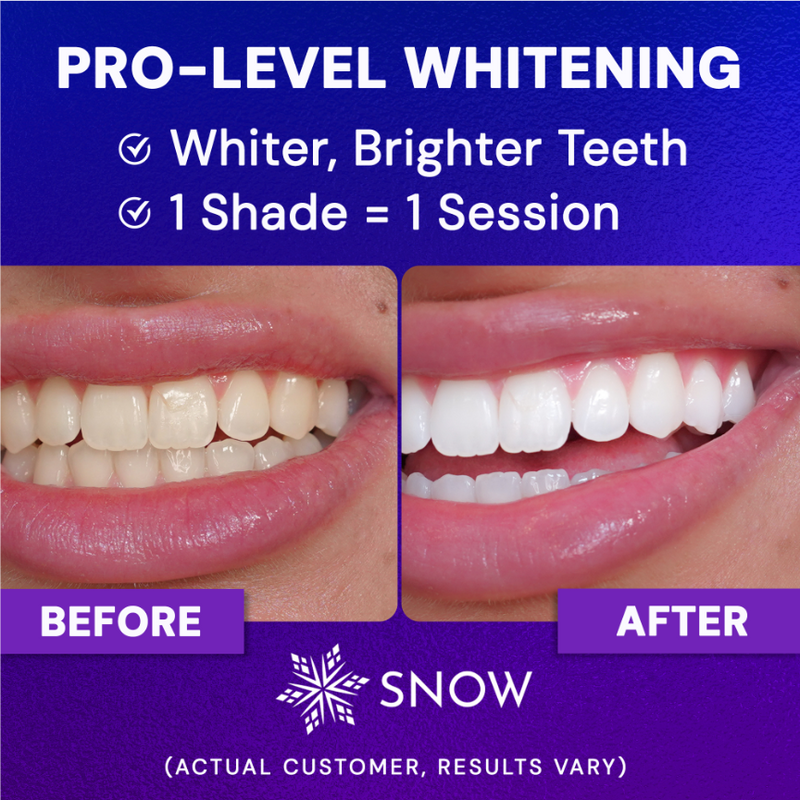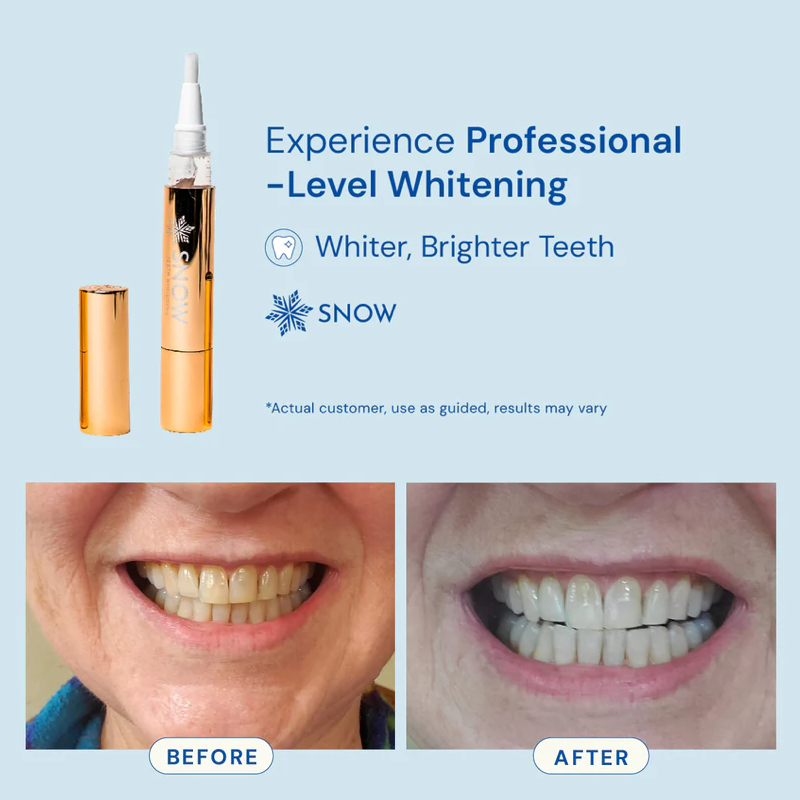Dental cleaning costs vary depending on your dental insurance coverage, kind of cleaning, geographic region, and age. When considering the expense of dental treatment, it is critical to evaluate if you want to obtain a separate dental insurance plan. Most dental insurance plans cover the entire cost of regular dental cleanings, although the teeth cleaning cost without insurance varies typically from $100 to $200.
Dental treatments are as essential as basic healthcare. Having comprehensive healthcare coverage that is both reasonable and accessible is critical to periodontal maintenance as well as your entire health and well-being.
WHY ARE DENTAL CLEANINGS IMPORTANT?
The actual cost of routine dental cleaning is worth its weight in gold. It's an essential preventative dental procedure designed to keep your teeth and gums healthy, preventing gum disease and eventual tooth loss. Without regular teeth cleanings, you have a greater possibility of losing teeth and developing avoidable oral ailments. Because teeth cleanings are preventive, their return on investment helps lower the chances of otherwise avoidable dental expenses.
RISKS OF NOT HAVING PROFESSIONAL TEETH CLEANING
Even if you have the best dental hygiene habits in the world, plaque and tartar accumulation will occur over time. Regular preventative teeth cleanings safely eliminate that accumulation, providing you with a "clean slate" to work with. Otherwise, tartar will continue to build up around and below the gums. It will eventually cause your gum tissues to peel away from your teeth, forming a deep pocket beneath them. This process can eventually lead to bone loss around the base of your tooth. Tooth movement and loss are likely unless action is taken.
Dental cleanings every six months are relatively inexpensive compared to the danger of tooth loss caused by tartar accumulation. Teeth cleanings are 100% preventive, so they're designed to help you retain your smile while saving you money in the long run.
THE IMPORTANCE OF ROUTINE DENTIST VISITS
Visiting your dentist regularly is as vital as seeing your primary care physician. Routine teeth cleanings are essential to your preventative dental care because they target stubborn plaque and tartar that at-home brushing cannot remove.
In addition to eliminating plaque and tartar build-up and stains, your dental hygienist may examine for indicators of oral disease such as gingivitis, gum disease, and oral cancer, which would otherwise go undiagnosed if routine cleanings were not performed.
POSSIBLE CONSEQUENCES OF MISSED TEETH CLEANINGS
Regular cleanings can aid in detecting oral health concerns before they worsen and perhaps prevent them from arising in the first place. Missing routine cleanings might result in the following problems:
TOOTH DECAY AND CAVITIES
Cavities and tooth decay develop beneath tartar and plaque buildup and are hard to eliminate on your own. Tooth decay may form anywhere on the tooth, even between teeth, and must be repaired by a dental professional.
PERIODONTAL DISEASE
Gum disease can occur when plaque irritates the gum line regularly. The gum line becomes inflamed, forming little pockets that collect germs, food, and plaque. Gum disease, if left untreated, can result in tooth and bone loss.
POOR BREATH
Bad breath is produced by bacteria-laden white hardened plaque, tartar, and tooth stains. As bacteria accumulates on your teeth and in your mouth, it creates an unpleasant odor we simply call bad breath, which can only be remedied by expert teeth cleaning.
COMPLICATIONS ASSOCIATED WITH PREGNANCY
Expectant moms have an increase in hormone fluctuation throughout pregnancy, which can make them more susceptible to infection and sickness. Bacteria from conditions like gum disease can harm the infant because infections spread throughout the bloodstream.
Aside from teeth and oral health issues, missing a teeth cleaning can lead to a reduction in general physical health. Poor dental hygiene has been related to various health problems, including heart attacks, strokes, diabetic complications, and high blood pressure. Your bloodstream quickly absorbs everything that enters your mouth. If you have a bacterial overgrowth in your mouth and practice poor dental hygiene, you may introduce hazardous pathogens into your bloodstream.
WHEN SHOULD YOU GET YOUR TEETH CLEANED?
According to the American Dental Association, individuals should have their teeth cleaned and checked at least once a year; however, you should strive for routine dental cleanings at least twice yearly or every six months. Visiting your dentist every six months minimizes the amount of plaque and tartar buildup and gives a narrower window of opportunity for oral problems to go undiagnosed.
Suppose you have pre-existing chronic diseases like diabetes, heart disease, or a family history of oral disease. In that case, consider getting your teeth cleaned and inspected more regularly, usually every 3-4 months. Discuss this routine with your dental team.
WHAT TO ANTICIPATE DURING A TEETH CLEANING
Your hygienist or dentist will use specific instruments to eliminate tartar during a teeth cleaning. Tartar is a mineral-bacteria combination that can build on your teeth if dental plaque is not removed. Because you cannot safely remove tartar from your teeth at home, you must have tartar professionally removed.
During cleanings, dental experts remove tartar in two ways:
Scaling: Dentists or hygienists employ ultrasonic or manual equipment to scrape tartar away from teeth and gum pockets.
Polishing: After scaling, your dentist or hygienist will polish your teeth using an electric polishing instrument and a particular toothpaste. This will smooth the enamel and help prevent plaque from adhering to your teeth.
EXTRA DENTAL CLEANING FEES
Your teeth cleaning may cost more than usual, depending on the conditions. You may wind up spending more if, for example:
- It's your first appointment, and the teeth cleaning is included in the first checkup
- You have a lot of plaque or tartar buildup
- You require a local anesthetic
- Other unanticipated situations require prompt attention
The overall price depends on the degree of care required, and dental cleaning prices are usually on the lower end of the scale. But remember that these factors might influence how much you spend out of pocket.
WHAT IS THE TYPICAL OUT-OF-POCKET COST FOR A DENTAL CLEANING?
A typical dental cleaning without insurance might cost around $75 to $200, with an average cost of roughly $125. This number may differ depending on where you reside or the dental professional's expertise and training.
COSTS OF DEEP CLEANING VERSUS BASIC DENTAL CLEANING
The extent of dental cleaning required may also determine the cost of the process. A deep cleaning not only polishes the visible parts of the teeth, but also smooths the surface of the top of the root, which aids in the treatment of gum disease. This therapy often takes several hours and might cost between $150 and $300 without insurance. However, if anesthetics are requested, the cost of a deep cleaning may be higher.
Factors Influencing Dental Cleaning Prices
Several factors influence the cost of professional dental cleanings. These are some examples:
- Dentist or dental hygienist location
- Your dental health situation
- Teeth cleaning method necessary
- Whether or not you have dental insurance
- Whether you require prescription toothpaste or an at-home product from your dentist
SAVING MONEY ON DENTAL CLEANINGS
Economical dental care may be out of reach, but various methods exist to save money on dental cleanings. Here are some ways to make things easier on your wallet:
ENROLL IN A DENTAL SAVINGS PLAN
A dental savings plan can cut the dental cleaning cost of your dental cleanings immediately, allowing you to save significantly over the year. Some programs can provide discounts ranging from 15 to 60% at regular dentists and 15 to 50% at specialists. Search Google for various dental plan alternatives to make dental treatment more affordable.
INQUIRE ABOUT PAYMENT ARRANGEMENTS
Many dentists allow financially challenged customers to pay for dental procedures in installments. For example, they may let you make two consecutive payments instead of one. Inquire about setting up a payment plan for your biannual dental cleanings with your dentist.
PURCHASE DENTAL INSURANCE COVERAGE
Teeth cleanings are sometimes totally covered by dental insurance. Even if they aren't, the cost of your visit will be substantially lower if you have insurance. You may also combine your insurance with a dental savings plan to save even more money.
These plans can also help you save money on crowns, braces, tooth extractions, and other dental bills.
SHOULD I CHOOSE A STANDARD OR DEEP CLEANING?
If you haven't had a dental cleaning in a long time, a thorough deep cleaning may be the best option to get you back on track with oral hygiene and remove any long-term plaque and tartar accumulation. Suppose you have been skipping regular cleaning sessions. In that case, you may be exhibiting early indications of bacteria pockets and gum disease, which are not visible until they have progressed to a more serious stage.
It is vital to remember that your dentist and dental hygienist should determine the type of cleaning required while they are evaluating your teeth in real-time. Furthermore, they can adequately determine the following stages depending on your oral health concerns, suitable treatments, and at-home recommendations.
CONCLUSION
Teeth cleanings are an essential aspect of maintaining good dental health. However, one of the most prevalent concerns regarding dental care is that it is too expensive, causing patients to forego necessary operations.
Don't put off cleaning because you can't afford them. Whether you have insurance or not, enrolling in a dental savings plan will help you lower your out-of-pocket costs and guarantee you can maintain your oral health. While keeping your teeth cleaning plan may cost some money, it may save you a lot of money on treatments in the long term.
FAQS
WHAT DOES IT COST TO GET YOUR TEETH CLEANED AT THE DENTIST?
A dental cleaning will cost you around $125 without insurance and $20-50 with insurance, more or less. The cost of dental services varies based on your region, the pricing of your dentist, and other considerations.
HOW OFTEN SHOULD I HAVE MY TEETH CLEANED?
If you have decent oral hygiene practices, the American Dental Association (ADA) advises that you have a regular checkup and dental cleaning at least once a year, ideally every six months.
IS A DEEP CLEANING AT THE DENTIST PAINFUL?
A deep cleaning might be painful, but most dentists use a local anesthetic to numb your gums throughout the procedure. This will relieve discomfort, and your gums may feel sore or irritated afterward.
IS A DEEP CLEANING REALLY NECESSARY?
If you have extensive gum disease, you will need a thorough cleaning. A thorough cleaning may cure gingivitis, enhance general health, and prevent subsequent dental problems like tooth loss.
HOW LONG DOES A THOROUGH CLEANING AT THE DENTIST TAKE?
A typical deep cleaning takes one to two hours and may be finished in a single visit, and it may require numerous visits if you have several troublesome locations or infections.





































































